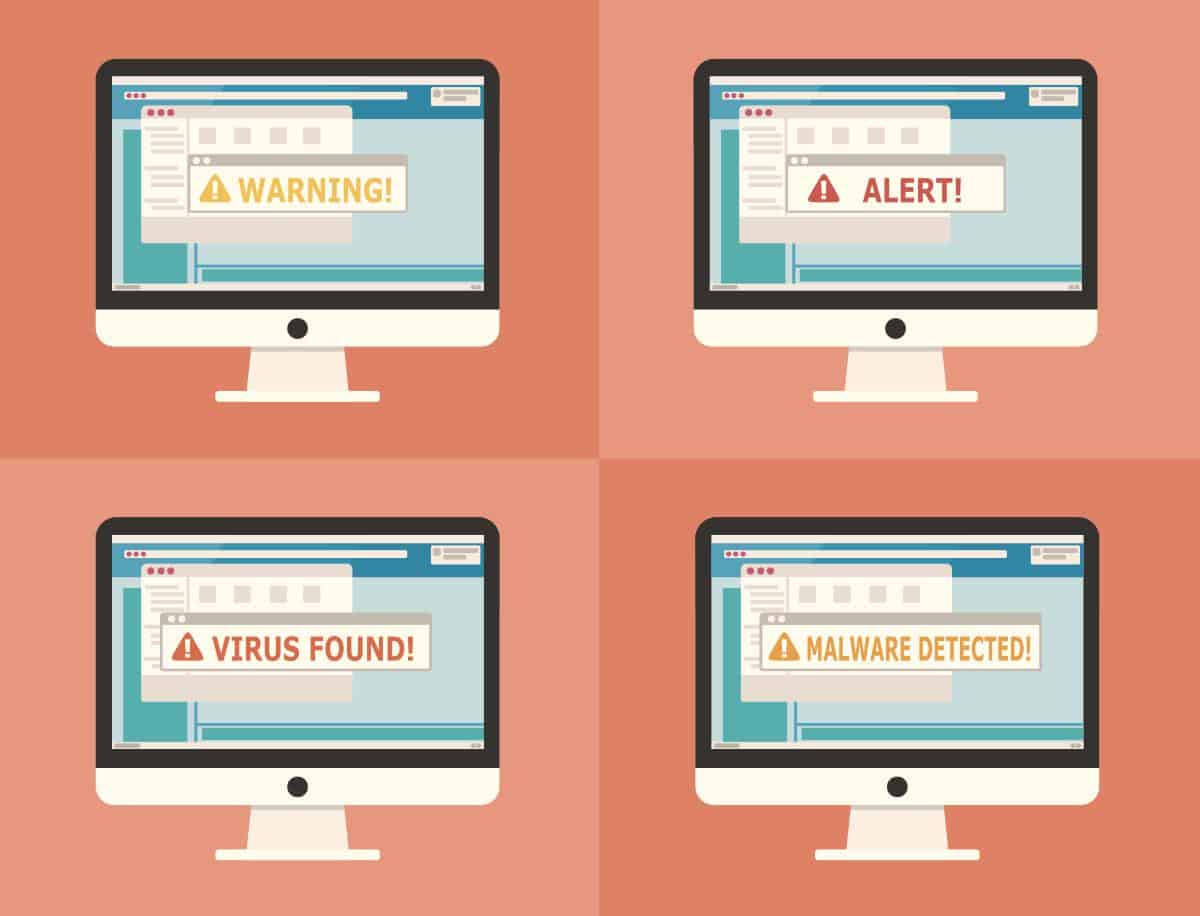Internet Scams to Avoid | How to Tell If It’s a Scam

These days, Internet scams come in thousands of different forms and styles, and a lot of people get confused and concerned over the possible severity. How can you tell if you’ve already been a victim of online scams? What are the different kinds of Internet fraud? The impact of online fraud is significant. Not only do you suffer from loss of money, but you can also become a victim of identity theft. These fraudsters can steal your personal information, like your Social Security number, and hurt you and others. Learn to prevent these types of online fraud with the following information.
Internet Scams | How to Spot the Most Common Ones and Prevent Them from Happening
In This Article:
The Top Internet Scams to Watch For

Internet scams are abundant since scammers keep evolving their methods to escape justice by authorities. These scam artists shut themselves down when caught and pop up again using a different persona. This type of slipperiness allows them to strike repeatedly, again and again.
That doesn’t mean you can’t learn to recognize familiar patterns used by these types of criminals. Below is a roundup of some of the most common scams:
1. Phishing Scams
This type of scam comes in many forms, from the typical Nigerian scam to more sophisticated attacks imitating official business emails. They’ll ask you to provide sensitive information like your password, credit card numbers, or other credentials.
Many of them come with official-looking logos that are almost indistinguishable from the real thing. That’s why many people end up giving them what they ask for and quickly regretting it. These contacts usually come with attachments or links you’re asked to download or click on.
Doing so usually ends up releasing all sorts of nasty malware. It gets into your computer system and does things like logging your keystrokes or going through your files searching for banking information or stored passwords.
Mr. Noobie Recommends Malwarebytes Premium: Your first line of defense against malware, ransomware, viruses, adware, spyware, phishing and other unwanted programs.
2. Work-At-Home Scams
The work-at-home-schemes make it possible for many to work without commuting. To get jobs, they rely on job board postings or other sources to find new leads. Unfortunately, these places have become fertile grounds for scammers looking to take advantage of independent contractors.
For example, a writer responding to a job board may be taken through what seems like a standard application process by a legitimate company. They often steal the credentials of real companies when making these posters to fool workers when they look up information on that business before responding.
The goal is getting you to reveal some personal information or download something onto your device, giving them access to your data. It’s often hard to trace the source since they quickly shut down and disappear when others are alerted to their scammer status.
3. Fake Computer Virus Scams

Have you ever been browsing a website and suddenly gotten a warning screaming your system’s infected and you need to download some scanning software right now? If you didn’t have problems before, you will if you end up clicking on that download button.
This is one of the popular Internet scams because of how easy it works. Some simply install annoying adware on your computer, but there’s often a more nefarious purpose for getting you to click. Many people lose complete control over their device and end up having to go in for expensive repairs to get all the junk off their computer.
4. Internet Dating Scams
Looking for love online is nothing new. Neither is the practice of putting up pictures obscuring the true looks or identity of a person behind their profile. Many Internet scammers have taken to creating fake dating personas designed to lure people in and gain their trust. This is what they call romance scams.
It starts out as standard online flirting and then tends to progress to requests for money, information about where you live, and other personal details. Many people find out too late they’ve been corresponding with someone who doesn’t really exist and who’s managed to take their money, their information for data theft purposes, or both.
5. Social Media Scams
We all get quizzes, videos, and games from friends and family in places like Facebook, but sometimes what may seem like innocent fun is coming from someone looking to gain your information. These harmless types of content may actually be a form of scam. They could end up releasing viruses and other malware onto your computer or mobile device.
They could also be targeting you due to where you work and your position at a company. These thieves track your postings and look for clues, allowing them to guess at your passwords and enter the internal systems at your job. Those vacation photos you put up end up being cues for hackers. They can tailor their attacks for a period when they know you won’t be at work.
6. False Website Scams
You’ll often see this in conjunction with email phishing scams. You will receive a link on your email address to what seems to be a real website for a business like Amazon or some other major company. They’re able to capture your credentials when you attempt to log in using your username and password.
Thieves also put up fake ads on websites leading to these types of sites. Cryptocurrency ads have been a popular way to fool people into visiting fake websites. It’s all a trap to lure you into providing information like credit card or bank account details.
Protecting Yourself against Internet Scams

How can you guard yourself against Internet scams? Here are a few tips:
1. Scan Internet Correspondence Carefully
We’re not just talking about emails. Monitor your social accounts as well. Make sure any tweets or messages sent to you on social media come from legitimate sources. Look for slight misspellings in the and unofficial-looking email addresses. Amazon associates wouldn’t contact you using a Gmail address. Most companies also will not ask you for personal information like passwords or birthdates this way.
2. Never Send Anyone Money
Anyone asking for money in response to a job opportunity or other online correspondence should be viewed with suspicion. It could be advance-fee fraud. Legitimate companies never ask for payment if they’re really interested in hiring you. Requests for wire transfers are another big red flag to watch out for.
You should also be wary of people asking you to deposit a check for them. They’re usually fake and wind up putting you in serious trouble with your bank.
3. Make Sure You Do Your Research

Again, many scammers have no problems stealing information from legitimate companies when they’re trying to rip you off. Even if you’re able to come up with valid info on a company, go a step further and send them an email confirming whether an offer you’ve come across is legitimate. This helps shut things down quickly and at least stops that form of fraud from continuing.
4. Avoid It if It’s Too Good to Be True
It would be great if we could all end up earning $100,000 per month by doing one small thing, but that’s not how things tend to work. Something that sounds impossible usually is. You should also steer clear of job postings offering you a lot of money for surprisingly few hours a week.
5. Report Immediately if You Become a Victim
If you fall into any of these Internet scams, report what happened to you to the Federal Trade Commission (FTC). Provide them with as many details as you can, including forwarding them emails with header information that might help authorities track down the thieves. Shut down any credit cards they may have gained access to. Inform your bank of any transactions you didn’t authorize and file a complaint and police report. If they are email scams, change your passwords immediately.
If the Internet scams used information from a real company, it’s a good idea to let the businesses know what happened to you. They have their own resources for tracking down cyber criminals and can also issue warnings, letting others know about the scheme.
Need more kinds of Internet scams? Watch this video from Matthew Santoro:
To prevent Internet scams, make sure you stay aware of the tactics. Be careful when applying to any ad or online posting. Do what you can to verify the credentials of the companies creating them. Think twice before sending out any personal information in Internet correspondence even if you feel sure of the identity of the person you’re in contact with. Use the information outlined in this article to keep yourself from becoming a scammer’s next success story.
Have you been a victim of any of these Internet scams? What are the lessons you learned? Share your stories below!
Up Next: How to Protect Yourself | 31 Tips to Stay Safe Online








